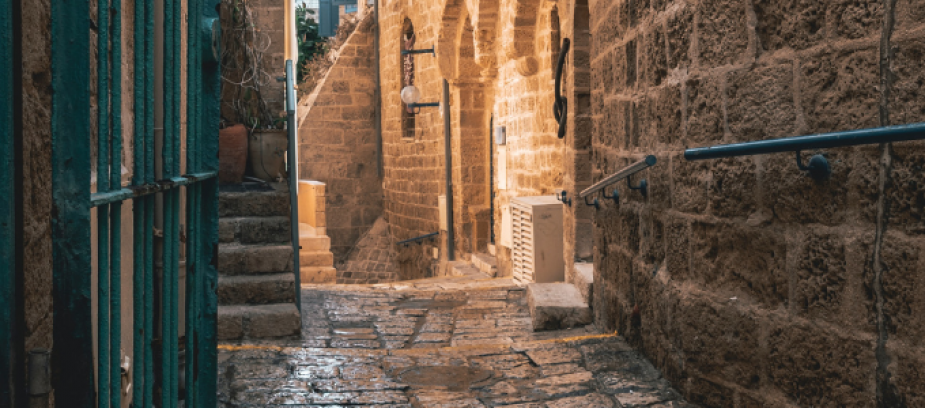Reflecting on God's Power to Restore the Rejected and Broken

Believers around the world recently celebrated the giving of the Holy Spirit at Pentecost. It’s the Church’s birthday—the beginning of all Jesus continues to do and teach through his disciples, from the first century until this very day, and through the power and presence of the Holy Spirit among God’s people. How thrilling!
One of the joys of being a Hope for New York affiliate is the fellowship of believers in praying, the corporate experience of the sovereign God moving among us to speak. While praying together a few weeks ago, Freeman led us through Psalm 84, a song of longing for joyful pilgrimage to the house of God, for “blessed are those who dwell in your house; they are ever praising you” (Psalm 84:4).
Earlier that morning, it just happened that I had read Acts 8. The Ethiopian eunuch had set his heart on pilgrimage, and in Acts 8, we meet him upon his return from Jerusalem. Unlike the psalmist, however, he had not met the Living God like he had longed for, but instead, the Valley of Baka, a place of weeping. (Psalm 84:6). An important official in the house of Queen Candace, he was in charge of the wealth of the royal treasury, but such a position had cost him dearly. Everything about him had been sacrificed to serve the royal house. We do not even know this man’s name; his personhood was defined by his condition. Physically maimed, the eunuch knew what it meant to be cut off, to lose everything for the sake of another.
Little did he know, when he embarked on an expensive and grueling 1500 mile trip to worship in Jerusalem, that it would cost him his heart’s desire. He arrived only to be rejected, declared unclean and unfit for Temple worship (Deuteronomy 23:1), and so he headed back home. Though the Ethiopian eunuch had found no home in God’s courts, though his best efforts seeking God had failed, though his heart and his flesh had cried out in vain, he continued to search the scriptures.
His weeping would only remain for a night.
The angel of the Lord heard the Ethiopian eunuch’s cry and sent Philip on a mission to turn his valley of weeping into a place of springs. “Go to that chariot and stay near it,” God told Philip (Psalm 84:6).
In that moment, the eunuch was reading, “He was led like a sheep to the slaughter, and as a lamb before her shearers is silent, so he did not open his mouth. In his humiliation he was deprived of justice. Who can speak of his descendants? For his life was taken from the earth.”
Running up to the chariot, Phillip asked, “Do you understand what you are reading?” Was he yelling above the din of the horses, breathing hard just trying to keep up? Certainly humbled by the experience in Jerusalem, the eunuch easily acknowledged his confusion, “How can I unless someone explains it to me?” So he invited Philip to join him in the chariot.
Philip, undeterred, jumped up into the chariot. Jew and Gentile, whole and broken, small and great, clean and unclean sat next to each other, shoulder to shoulder. Together, they marveled at the grace of God.
“Tell me, please, who is the prophet talking about, himself or someone else?” You can feel the desperation and wonder in the question beneath the question, “ Who is this who has walked in my shoes? And why? Who could this possibly be?”
Can you just imagine the joy Philip had declaring the good news of Jesus? The Creator God of the universe not only knew the eunuch by name, but he too had been deprived of justice, rejected and humiliated, yet for him. God the Son had become unclean so the eunuch could be forever clean, never to leave God’s house. In fact, he would be God’s Temple. Giving orders to stop the chariot, the eunuch cried out, “Here’s some water. Why shouldn’t I be baptized?” Philip and the eunuch descended into the water together, and the eunuch emerged—whole and clean.
To whom is God sending you? And are you willing to go?
Chris Whitford, Executive Director of Avail NYC, shared this reflection at a recent affiliate network gathering.
